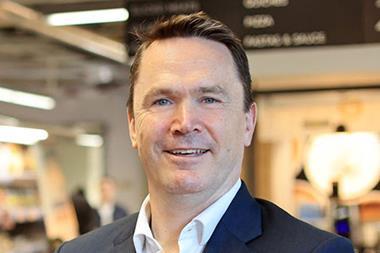With top-tier positions at retailers becoming increasingly complex and challenging to fill, Christof Hirsch explores how retailers can find leaders taking capable of taking on such a role
Developmental gaps and competing priorities are the most significant risks to effective succession planning, according to a Spencer Stuart survey of chief human resource officers preparing to hire the next wave of retail leaders.
With nearly 60% of respondents having named one of these risks as their top concern, how chief HR officers (CHROs) address these challenges will determine their success in hiring influential leaders.
Mind the gap
One reason for succession planning difficulties is that the breadth of leadership capabilities and functional skills required of future leaders is expanding.
The same survey found 84% of CHROs indicate that leading people and empowering individuals will be the top capability of future leaders. But 47% also felt this area presented the most significant gap between desired and actual capabilities in candidates.
CHROs also believe functional skills such as digital (88%), human resources (88%), data and analytics (82%), and technology (78%) will also become more significant for c-suite leaders over the next three years.
How can retailers find leaders who are capable of taking on such a complex and demanding role?
Start development early, identify and prioritise capability gaps
CHROs should start development early — ideally five years before c-suite turnover — and identify the most substantial capability gaps in their talent pipeline. A future vision for the business can help solidify talent profiles and corresponding skills.
From there, CHROs can make targeted plans to address competency gaps through tailored learning experiences, special projects, or other offerings.
Focused development planning can also alleviate the burden of having too many competing priorities.
Cast a wide net
A shallow talent pool hinders succession planning. As such, CHROs should widen their view to consider successors earlier in their career and those two or three levels below the c-suite.
HR leaders can also look at the current assessment process to see where to adjust. Retailers should identify barriers, such as unconscious bias, which might prevent talented future leaders from getting development opportunities that put them on the path to the c-suite.
Consider potential
In truth, no candidates will meet every requirement in a talent profile. This means that retailers should make identifying potential a core part of the assessment process.
Qualities such as agility, adaptability, humility and a desire to learn are major indicators of a candidate’s ability to succeed in a leadership role, especially as the world of retail becomes more complex.
By rethinking old development and succession planning approaches, retail CHROs can find the right people with the right skills to lead their companies into the future.
Read more in our full report: The Future of Retail Leadership: Why retailers need to invest in future leaders more than ever
Dr Christof Hirsch is a consultant in Spencer Stuart’s global consumer and retail, apparel and luxury goods practices
































